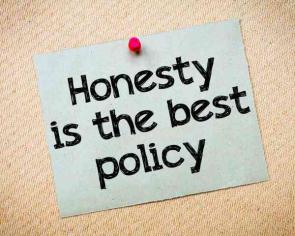Reactions to the Dismissal
Candidates who are dismissed from their firms often experience a variety of reactions. They are angry, hurt, frustrated, and sometimes even confused. Questions like “What did I do?”, “Why is this happening to me?”, and “How will I ever find another job?” are very common. Often a candidate did not “do” anything. When you are dealing with candidates who have been high enough achievers all their lives to even get a job at an AmLaw 100 firm, then it becomes increasingly unlikely that they actually did anything to precipitate their dismissals. It is more often the case that the firm (or more specifically the candidate’s practice group) is slow, and since the firm is unwilling to admit that they are slow, they decide to tell the candidate that “things are not working out”. Another fairly common scenario is that the candidate got on the wrong side of the wrong partner in the group, and his entire existence is now colored by his experience with that partner. In fact, the very way candidates who have been dismissed are treated – e.g. given a three month grace period – suggests that the firm knows that the candidate is not wholly (or may be even partially) at fault. Take solace in this perspective; be grateful for your grace period; and focus on finding a new position.
References Are Critical
When I encounter a candidate who is being dismissed, I ask him whether he can obtain references. In the last ten years, firms have begun to take the position that they do not give references for departing attorneys regardless of the manner in which the attorney is departing. Firms will merely confirm dates of employment. Occasionally, when a firm has this policy a partner (who likes the candidate and knows the real reason the candidate is being dismissed) will act “off the record”. Other times, a candidate can reach out to a partner or senior associate with whom he worked but who is no longer with the firm; and, therefore, can act as a reference. If neither of these options is available, then the candidate must be able to provide references from law school, a clerkship, or perhaps even another law firm where he summered. It is imperative that a candidate be able to provide references both for the new firm, and also for me. I will not work with a candidate who cannot provide references because I value my clients – the law firms - and I do not want to jeopardize my relationships with them by submitting a candidate who may be a difficult or problematic employee.
Maintain Your Hours at a Respectable Level during Grace Period
It is hard to show up at a law firm where you have been dismissed, and no one is going to minimize how difficult it may be to show up every day for three months while you try to find a new position. I am not going to make life easier by telling you that not only must you show up for work each day, but I highly recommend actually doing some work while you are there. I make this recommendation because a new trend among law firms is to have all candidates – not just partners - complete a Lateral Hiring Questionnaire (“LHQ”) as part of the hiring process. The LHQ always asks for your hours to date. If you learned that you were being dismissed in February (and stopped doing billing), and you are completing a LHQ in May, and you only have 350 hours for the year, then it is going to raise questions that you probably do not want to answer. In all likelihood, the new firm will figure out that you have been laid off, and may even pull the offer. It is critical that you continue to bill hours while you look for a new position. You can even explain to your current firm that you do not want to be in a position where you are accepting a check each week, but not doing any work. I am confident that they will find some project you to handle so that you can stay busy, and be honest when completing your LHQ.
Keep Track of Your Submissions and Engage a Committed Recruiter
Usually, I do not need to tell a dismissed candidate that he should submit his resume as broadly as possible. Often I have the opposite problem. A candidates may be so anxious that he thinks that using multiple recruiters and submitting to the same openings repeatedly will increase his chances of getting interviews and offers. It will not. If anything, this scattershot approach – much like suspiciously low hours – will be a red flag to new employers. A dismissed candidate who has been laid off should absolutely explore all possible job opportunities, including jobs in different geographic locations; however, he should keep track of his submissions so that he does not submit multiple applications. In addition, a dismissed candidate will have much better results if he finds one recruiter who really believes in him and wants to invest time in his search. One committed and experienced recruiter is worth more than ten experienced but less than dedicated recruiters.
Conclusion
Weathering a dismissal from an AmLaw 100 firm is challenging. It is absolutely normal to experience a wide range of emotions and reactions. Feel your feelings, but do not wallow in self-pity or agonize over the past. Accept the things you cannot change; and you most certainly cannot change the past. Focus instead on the future. Who will you use for references? Having excellent references is critical. Who at your firm will continue to give you work? Seek out that person and maintain your hours. It is likely that you will be asked about your hours to date by your new employer. Who will help you with your search? Find a reputable and dedicated recruiter who understands your predicament and believes in you. Multiple submissions are not a good idea, but a focused and experienced recruiter who genuinely knows that market and is loyal to you is invaluable. As the saying goes . . . “Stay calm and carry on!”
About Harrison Barnes
Harrison Barnes is a prominent figure in the legal placement industry, known for his expertise in attorney placements and his extensive knowledge of the legal profession.
With over 25 years of experience, he has established himself as a leading voice in the field and has helped thousands of lawyers and law students find their ideal career paths.
Barnes is a former federal law clerk and associate at Quinn Emanuel and a graduate of the University of Chicago College and the University of Virginia Law School. He was a Rhodes Scholar Finalist at the University of Chicago and a member of the University of Virginia Law Review. Early in his legal career, he enrolled in Stanford Business School but dropped out because he missed legal recruiting too much.
Barnes' approach to the legal industry is rooted in his commitment to helping lawyers achieve their full potential. He believes that the key to success in the legal profession is to be proactive, persistent, and disciplined in one's approach to work and life. He encourages lawyers to take ownership of their careers and to focus on developing their skills and expertise in a way that aligns with their passions and interests.
One of how Barnes provides support to lawyers is through his writing. On his blog, HarrisonBarnes.com, and BCGSearch.com, he regularly shares his insights and advice on a range of topics related to the legal profession. Through his writing, he aims to empower lawyers to control their careers and make informed decisions about their professional development.
One of Barnes's fundamental philosophies in his writing is the importance of networking. He believes that networking is a critical component of career success and that it is essential for lawyers to establish relationships with others in their field. He encourages lawyers to attend events, join organizations, and connect with others in the legal community to build their professional networks.
Another central theme in Barnes' writing is the importance of personal and professional development. He believes that lawyers should continuously strive to improve themselves and develop their skills to succeed in their careers. He encourages lawyers to pursue ongoing education and training actively, read widely, and seek new opportunities for growth and development.
In addition to his work in the legal industry, Barnes is also a fitness and lifestyle enthusiast. He sees fitness and wellness as integral to his personal and professional development and encourages others to adopt a similar mindset. He starts his day at 4:00 am and dedicates several daily hours to running, weightlifting, and pursuing spiritual disciplines.
Finally, Barnes is a strong advocate for community service and giving back. He volunteers for the University of Chicago, where he is the former area chair of Los Angeles for the University of Chicago Admissions Office. He also serves as the President of the Young Presidents Organization's Century City Los Angeles Chapter, where he works to support and connect young business leaders.
In conclusion, Harrison Barnes is a visionary legal industry leader committed to helping lawyers achieve their full potential. Through his work at BCG Attorney Search, writing, and community involvement, he empowers lawyers to take control of their careers, develop their skills continuously, and lead fulfilling and successful lives. His philosophy of being proactive, persistent, and disciplined, combined with his focus on personal and professional development, makes him a valuable resource for anyone looking to succeed in the legal profession.
About BCG Attorney Search
BCG Attorney Search matches attorneys and law firms with unparalleled expertise and drive, while achieving results. Known globally for its success in locating and placing attorneys in law firms of all sizes, BCG Attorney Search has placed thousands of attorneys in law firms in thousands of different law firms around the country. Unlike other legal placement firms, BCG Attorney Search brings massive resources of over 150 employees to its placement efforts locating positions and opportunities its competitors simply cannot. Every legal recruiter at BCG Attorney Search is a former successful attorney who attended a top law school, worked in top law firms and brought massive drive and commitment to their work. BCG Attorney Search legal recruiters take your legal career seriously and understand attorneys. For more information, please visit www.BCGSearch.com.
Harrison Barnes does a weekly free webinar with live Q&A for attorneys and law students each Wednesday at 10:00 am PST. You can attend anonymously and ask questions about your career, this article, or any other legal career-related topics. You can sign up for the weekly webinar here: Register on Zoom
Harrison also does a weekly free webinar with live Q&A for law firms, companies, and others who hire attorneys each Wednesday at 10:00 am PST. You can sign up for the weekly webinar here: Register on Zoom
You can browse a list of past webinars here: Webinar Replays
You can also listen to Harrison Barnes Podcasts here: Attorney Career Advice Podcasts
You can also read Harrison Barnes' articles and books here: Harrison's Perspectives
Harrison Barnes is the legal profession's mentor and may be the only person in your legal career who will tell you why you are not reaching your full potential and what you really need to do to grow as an attorney--regardless of how much it hurts. If you prefer truth to stagnation, growth to comfort, and actionable ideas instead of fluffy concepts, you and Harrison will get along just fine. If, however, you want to stay where you are, talk about your past successes, and feel comfortable, Harrison is not for you.
Truly great mentors are like parents, doctors, therapists, spiritual figures, and others because in order to help you they need to expose you to pain and expose your weaknesses. But suppose you act on the advice and pain created by a mentor. In that case, you will become better: a better attorney, better employees, a better boss, know where you are going, and appreciate where you have been--you will hopefully also become a happier and better person. As you learn from Harrison, he hopes he will become your mentor.
To read more career and life advice articles visit Harrison's personal blog.





